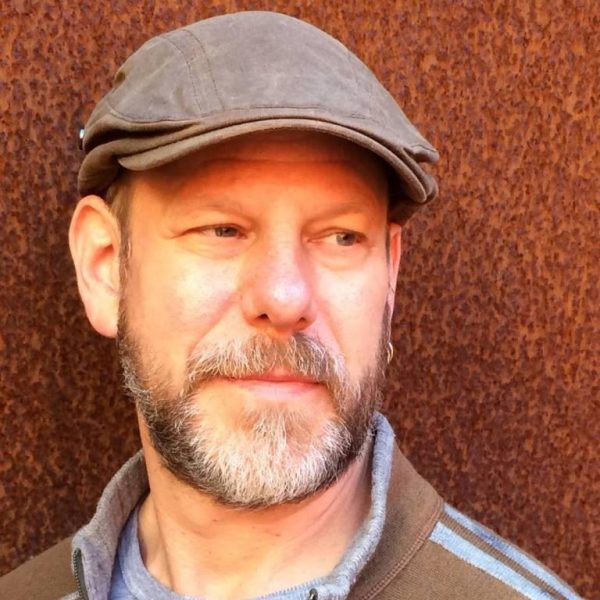Today we continue highlighting our “local” poets (faculty and alumni). We sent a short set of questions to each, and are posting their responses. Today we are sharing what Matthew Cooperman had to say. (You can read our feature of him from 2017 National Poetry Month here, which includes his bio).
Why does poetry matter?
Poetry matters because it is matter, the stuff of things (Williams’ “no ideas but in things”), or the language of things, words also things. Or poetry is anti-matter, the intangible dark silence between things, a translation. From Pound’s “tale of the tribe” to Rukeyser’s documentary witness to Langston Hughes weary blues to Hejinian’s My Life as a series of sentences, poetry offers a voice to the variety of experience.
Why do you write poetry and not some other genre?
Well, I do write other genres (nonfiction, ecocriticism), but poetry’s music is stuck in my ear, or I most hear the world rhythmically, and that gathers in lines rather than sentences. Don’t get me wrong, I like sentences, too, but there’s something about the line’s absolute autonomy that thrills me.
How did you find poetry?
It wasn’t too hard, it was always on the bookshelf––ee cummings, Yeats, Frost, Rukeyser, May Sarton. I can remember distinctly my mother reading Yeats to me as a baby, something of the that music again.
Another answer is I had great teachers, from Ms. Baird in 2nd grade to Ms. Larson in 4th, to two great teachers in high school, Elvira Monroe and Nello Carlini, to my brilliant college instructor, the Pulitzer-prize winning poet Peter Balakian. I say all their names because they mean that much to me. I’m sure I’m teacher because of them.
What are you working on now?
My wife and I (the poet Aby Kaupang) are about to bring out our long-running collaboration NOS (disorder, not otherwise specified), which distills nearly a decade of work raising our daughter Maya, who is living on the autism spectrum, which means, oddly, so are we. Equally spectral is the work, which weaves through the physical hospital of intake, education, diagnosis, medication, discharge, activism. It should be out by this summer, from Futurepoem.
What poem, poet, or poetry collection is your favorite?
An impossible question, but a few really great collections I’ve read lately: Christopher Salerno, Sun & Urn, Jen Scappertone, The Republic of Exit 43, Courtney Lamar Charleston, Telepathologies, Joan Naviyuk Kane, Milk Black Carbon, Richard Greenfield, Subterranean.
